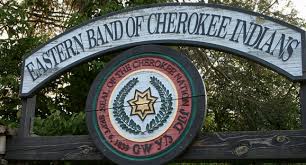
A New Era Begins: Tribal Land Cannabis Sales in North Carolina
The winds of change are blowing across North Carolina's landscape as recreational marijuana sales officially kick off on tribal land, marking a significant milestone in the state's evolving relationship with cannabis. This unprecedented development, spearheaded by the Eastern Band of Cherokee Indians, sets the stage for a complex yet promising future for the cannabis industry within the state. In this post, we'll explore the historical background, economic implications, regulatory hurdles, and community perspectives surrounding this groundbreaking move, providing you with a comprehensive look into what this means for North Carolinians and the cannabis community at large.
Understanding the Historical Context and Legal Framework
To truly appreciate the significance of this development, we must first understand the historical context of marijuana use and regulation in North Carolina. Traditionally, the state has maintained strict laws against marijuana, with possession or use remaining illegal except under certain medical conditions. However, the landscape began to shift as conversations around hemp and cannabis gained momentum, driven by advocacy groups and changing public opinion.
The federal-tribal relationship plays a crucial role here, given that tribal sovereignty allows the Eastern Band of Cherokee Indians to govern their lands independently and enact their own rules regarding cannabis. This autonomy has empowered them to open the Great Smoky Cannabis Co., marking a pivotal moment where tribal sovereignty intersects with the burgeoning cannabis industry. In a region where recreational marijuana remains prohibited, this represents a bold step toward redefining cannabis policy.
Economic and Social Impact of Cannabis Sales
The economic ramifications of recreational cannabis sales on tribal land are vast and promising. For the Eastern Band of Cherokee Indians, this venture presents an opportunity for economic growth and diversification. By tapping into the lucrative cannabis market, the tribe can generate substantial revenue that could be reinvested into community programs, infrastructure, and social services.
Beyond the tribe, the local community stands to benefit significantly. The influx of visitors to the dispensary has the potential to boost tourism and stimulate local businesses, creating a ripple effect throughout the region. However, with economic opportunity comes social considerations. Public health and safety concerns must be addressed proactively to ensure a harmonious integration of cannabis use into the community fabric. This requires education, awareness campaigns, and cultural shifts in attitudes toward recreational marijuana use.
Navigating Regulatory Challenges and Opportunities
Implementing and overseeing recreational cannabis sales on tribal land presents its own set of regulatory challenges. The tribe finds itself at the forefront of navigating complex legal landscapes, balancing their sovereignty with federal and state regulations. Ensuring compliance and maintaining transparency are paramount to building trust with stakeholders and upholding the integrity of the operation.
However, these challenges also present opportunities for collaboration and innovation. The tribe has a unique chance to set benchmarks in responsible cannabis sales, fostering partnerships with local authorities, health organizations, and industry leaders. By leading the charge, they can establish best practices that could serve as a model for other regions considering similar initiatives in the future.
Community and Stakeholder Perspectives on Cannabis Sales
The voices of local residents, cannabis enthusiasts, health advocates, and tribal leaders provide a rich tapestry of perspectives on this new development. Many residents view the move as a progressive step forward, aligning with broader trends toward the acceptance and legalization of cannabis. For cannabis enthusiasts, this marks an exciting opportunity to access products in a region that has historically been restrictive.
Health advocates, on the other hand, emphasize the need for comprehensive education and research on the long-term effects of recreational cannabis use. Balancing enthusiasm with caution is key to ensuring that the community reaps the benefits of this initiative without unintended consequences. Tribal leaders, being at the helm of this endeavor, are committed to fostering an environment that respects the cultural heritage and values of their community while exploring new avenues for growth.
Looking Ahead to the Future of Recreational Marijuana in North Carolina
In conclusion, the commencement of recreational marijuana sales on North Carolina tribal land heralds a new era of possibilities. The Eastern Band of Cherokee Indians' decision to leverage their sovereignty in this manner positions them as pioneers in the region's cannabis landscape. However, with great power comes great responsibility, and it is crucial for all stakeholders to work collaboratively toward a sustainable and inclusive future.
By engaging in open dialogue, advocating for evidence-based policies, and promoting awareness, we can pave the way for a more informed and equitable approach to cannabis in North Carolina. This is not just a moment of change but a call to action for individuals and communities to come together, learn from one another, and shape the future of cannabis use in the state.
For those eager to further explore the realm of recreational marijuana and its implications, consider joining the conversation, attending community forums, and staying informed through reputable sources. Together, we can build a more informed and inclusive society that embraces the potential of cannabis while prioritizing the well-being of all.



